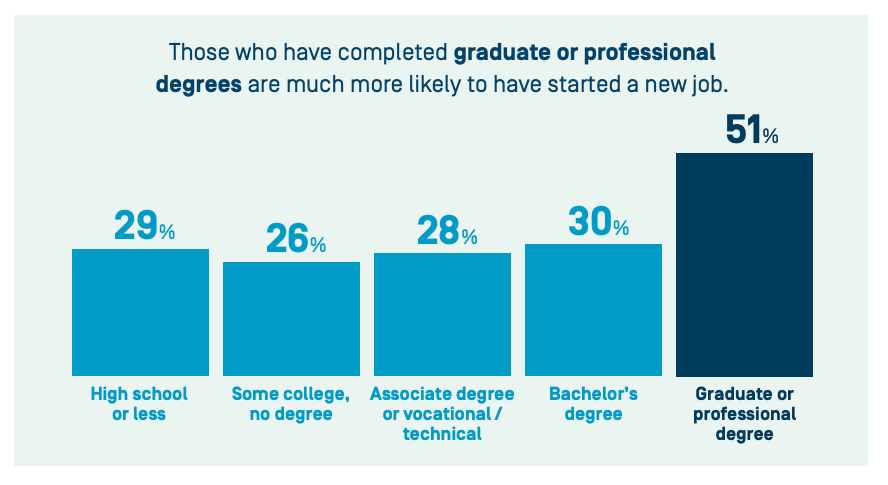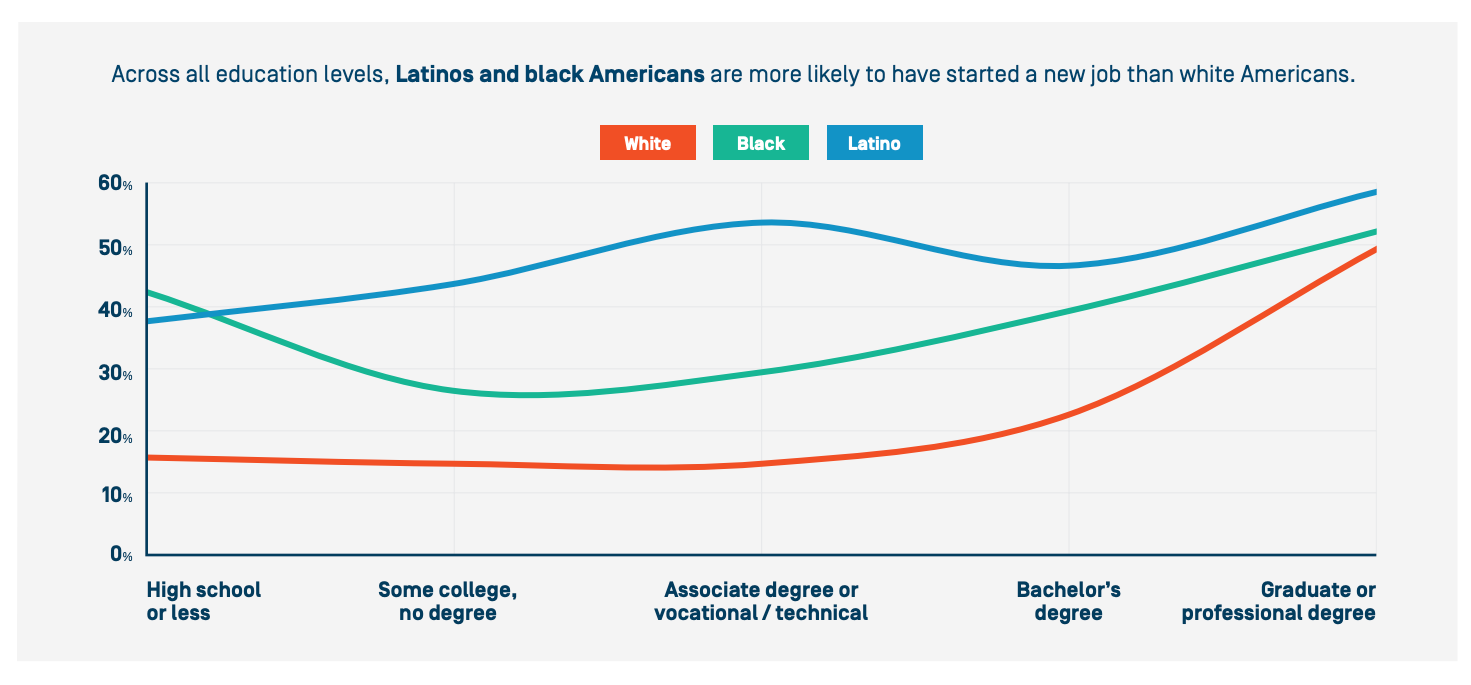You have /5 articles left.
Sign up for a free account or log in.

iStockphoto.com/Chainarong Prasertthai
It’s been well accepted for years that a college degree makes it easier to get a job. A new survey shows that amid the coronavirus pandemic, that may not be true across the board.
More than 33 million Americans have filed for unemployment since the pandemic began, and the nationwide unemployment rate has climbed to 14.7 percent, according to the U.S. Bureau of Labor Statistics. A Strada Education Network survey released Wednesday shows that more than half of Americans have lost jobs, hours or income as a result of the pandemic. Of those people, graduate and professional degree holders are more likely to have started a new job in the past month than people with a bachelor’s degree, associate or vocational degree, some college education, or a high school diploma or less.

“You would expect, typically, that any kind of higher education would really be giving people a boost in terms of jobs. And here what we see is at the very highest levels -- people who have graduate and professional degrees -- that is true,” said Nichole Torpey-Saboe, director at the Strada Center for Consumer Insights. “But we’re not seeing the same kind of bump for people with bachelor’s degrees or associate’s degrees.”
Strada’s ongoing survey has been running for eight weeks and has reached more than 7,000 respondents to date. Each week, researchers ask Americans about job loss, hour and income reductions, future education plans, and general feelings of worry about the pandemic.
Latinx and black Americans are more likely to have started a new job in the past month than white Americans, the survey shows. This is true for all education levels. The greatest disparity is among those with a high school diploma or less education: 18 percent of white Americans with a high school education or less have changed jobs in the past month, while 43 percent of black Americans and 38 percent of Latinos with a high school diploma or less have done the same.

Strada’s research cannot explain the reasons behind this difference, Torpey-Saboe said, but she noted that Latinx and black Americans are among those losing jobs, hours and income at the highest rates.
Responses to Strada’s recurrent questions remained mostly steady this week. More than six in 10 Americans, 62 percent, report feeling worried about losing their jobs, a slight decrease from last week’s 63 percent. This metric is significant, Torpey-Saboe pointed out, because it’s not decreasing as more Americans are put out of work.
“Even among those who have made it this far, you still have six in 10 saying that they’re worried,” she said.
General feelings of worry increased this week, from 46 percent to 49 percent.
“People are not feeling better about things,” Torpey-Saboe said. “They’re not necessarily feeling worse, but they’re not expecting that this is over by any means.”
This week’s survey was conducted between May 6 and 7.
Next week, Strada will look more closely at the people who have changed education plans as a result of the pandemic, how those plans have changed and what types of education people are looking for in the future.




